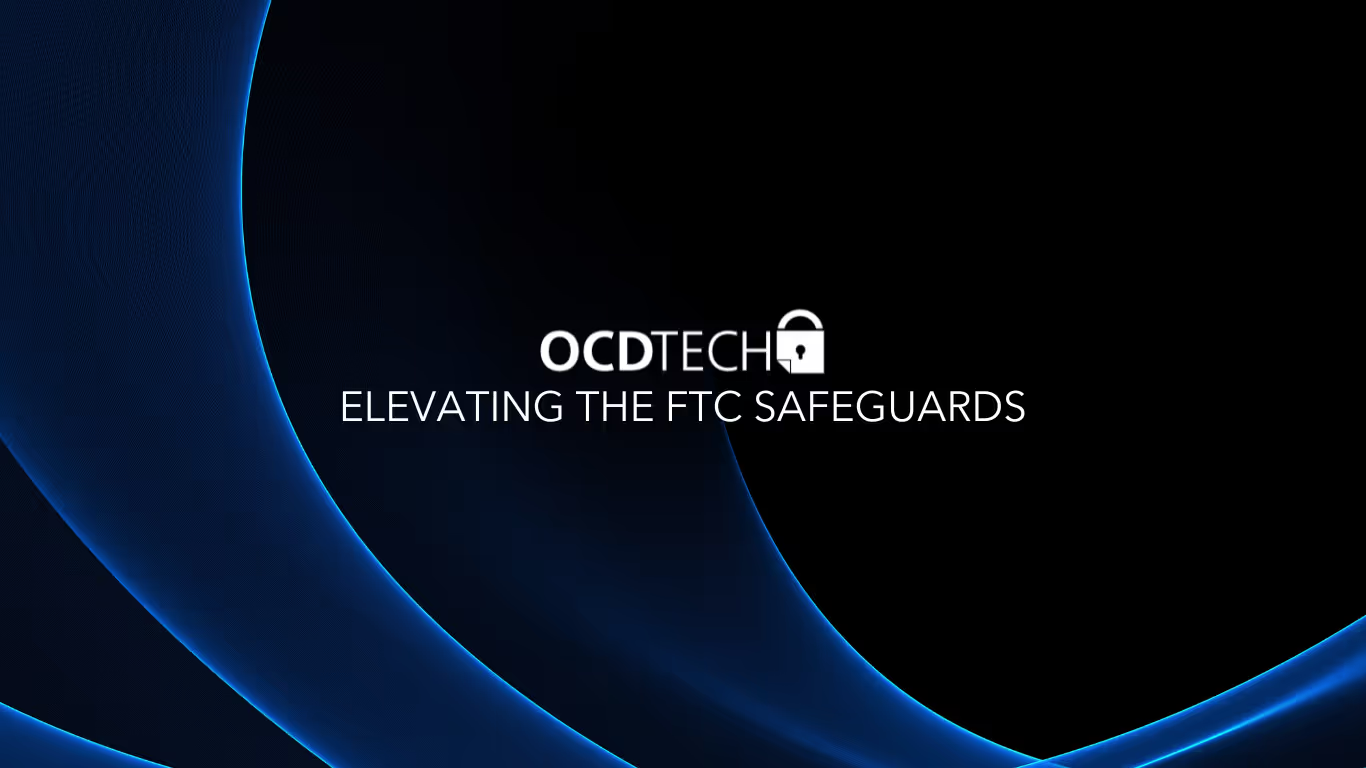By
Nick Reed
April 4, 2024
•
4
min read

In the ever-evolving landscape of cybersecurity, one fundamental principle remains clear: compliance does not always equal security. Auto dealers must be proactive in protecting their customers' data and in maintaining their brand's integrity. Applying the security concept of defense in depth is essential to fortify FTC Safeguards compliance and ensure robust security.
As of June 2023, the FTC imposed rules on safeguarding information which auto dealers are now subject to. The Rule establishes baseline requirements and imposes hefty fines and penalties for noncompliance. Failure to adhere to these guidelines poses significant risks. However, even for those who have achieved compliance, the question remains: is it truly sufficient?
Data breaches can be devastating, not only financially but also in terms of erosion of customer trust and damage to reputation. When data is stolen, several pressing responsibilities come into play. The ultimate goals often come down to making customers whole and restoring your reputation. Many breaches take place in companies that were compliant with leading security standards. It cannot be overstated; regulatory compliance alone is not always enough to stop a bad actor. This raises a pertinent question: are the FTC Safeguards sufficient for data protection on their own?
The FTC Safeguards offer an excellent framework to base a security program upon; however, a comprehensive security program extends beyond the FTC Safeguards. An effective strategy for securing sensitive data is to create layers of protection, much like an automobile relies on multiple safety features to protect its passengers. For instance, cars use components such as anti-lock brake systems, airbags, seatbelts, shatter-resistant glass, and pre-collision technologies. Together, these measures mitigate most of the damage in a collision and support one another to keep passengers safe. Should one measure fail to operate effectively, there are redundant safety measures that exist to fill in the gaps.
Similarly, in a serious cyber-attack, a single security control may not be able to mitigate all the damage, but multiple controls working in unison can. Continuing with the car analogy, if an operator is driving recklessly and not in line with the rules of the road, these protective measures will not be as effective when relied upon. Comparably, if a business is reckless with their customer data, existing security measures may not be sufficient, even with significant safety measures in place. Businesses must operate within predefined rules, like the Safeguards for established protections to operate as intended.
To demonstrate the concept of defense in depth within the context of the FTC Safeguards, let us consider the encryption requirement. For purposes of this exercise, let us consider that all data at rest and in transit has been effectively encrypted. Taking security to the next level involves a multi-layered approach that further backs up the requirement.
An additional layer is enforcing stringent data-flow policies. Instituting and upholding a strict policy that prohibits the storage of customer information on local workstations significantly mitigates the risk of encountering unencrypted data. Mandating that all customer data be channeled directly into secure platforms such as Dealer Management System (DMS) or Customer Relationship Management (CRM) solution fortifies protection by minimizing the likelihood of data exposure at the local level. Should one layer fail, the others stand in as reinforcements.
As an advanced safeguard, a script (or a set of programmed instructions), can be deployed to automatically clear users' download folders on a weekly basis. This additional measure ensures that potentially vulnerable areas concerning customer information are regularly purged, thereby reducing the risk of unauthorized access to sensitive data. By complementing the previous layers, this third tier contributes to a fortified defense system with significantly enhanced overall efficacy compared to relying solely on a technical implementation of encryption to protect your sensitive information.
For auto dealers, safeguarding customer data demands proactive measures beyond mere regulatory adherence. Embracing the defense in depth approach, which extends beyond the requirements outlined by the FTC Safeguards, is indispensable. Much like the layers of safety features in automobiles, multiple security measures working in concert offer a resilient defense against cyber threats. The assurance that additional layers of defense stand ready to mitigate risks in the event of a control failure provides invaluable peace of mind to dealerships. By adopting a proactive stance and bolstering their security posture with a multi-layered approach, auto dealerships can instill confidence among customers, protect their sensitive data, and avoid regulatory penalties associated with non-compliance. Contact our team of experts.
SECURING YOUR PATH

Audit. Security. Assurance.
IT Audit | Cybersecurity | IT Assurance | IT Security Consultants – OCD Tech is a technology consulting firm serving the IT security and consulting needs of businesses in Boston (MA), Braintree (MA) and across New England. We primarily serve Fortune 500 companies including auto dealers, financial institutions, higher education, government contractors, and not-for-profit organizations with SOC 2 reporting, CMMC readiness, IT Security Audits, Penetration Testing and Vulnerability Assessments. We also provide dark web monitoring, DFARS compliance, and IT general controls review.
Contact Info
.svg)
OCD Tech
.svg)
25 BHOP, Suite 407, Braintree MA, 02184
.svg)
844-623-8324
.svg)
https://ocd-tech.com
Follow Us
Videos
Check Out the Latest Videos From OCD Tech!
Services
SOC Reporting Services
– SOC 2 ® Readiness Assessment
– SOC 2 ®
– SOC 3 ®
– SOC for Cybersecurity ®
IT Advisory Services
– IT Vulnerability Assessment
– Penetration Testing
– Privileged Access Management
– Social Engineering
– WISP
– General IT Controls Review
IT Government Compliance Services
– CMMC
– DFARS Compliance
– FTC Safeguards vCISO